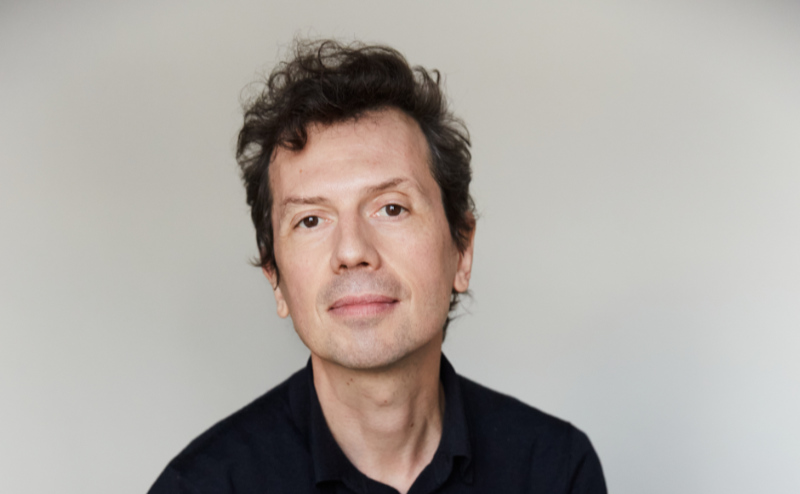Pleased to announce that we’re publishing Coming To Berlin: Global Journeys Into An Electronic Music and Club Culture Capital this spring. Told through Paul Hanford‘s novelistic narration, the book mixes imagination and interview, psychogeography and narrative, humour and horror. Each chapter follows encounters with people who have made Berlin their own. Here the author explains how he came to write it.
The first seeds for writing this book came when I finally moved to Berlin in 2018. Prior, after each stay, I’d return back to London with a reignited passion for electronic music and a deep sense that there is still a place in the world where outsiders were not only accepted, but help define, as well as run the electricity, on a city’s cultural power.
That first time, treading snow one night near the Spree, I was more Bowie’s Low than Berghain’s line etiquette, and this was reflected in a swift and understandable rejection by some guy I’d learn is called Sven.
Immediately, I piled into a taxi with new friends, not paying attention to the address and we danced in a place that still to this day I’ve never been able to find the name of. I didn’t know the term ‘safe space’ then but what the night gave me, beyond the music, was an immediate sense of community.
Over the following few years, every time I’d visit, whether I danced or not, I bathed in that feeling of acceptance, of myself and of others, of feeling comfortable in my own skin. A sense of freedom, as punk as it is techno, as anarchic as it is ambient, kept manifesting in daily interactions, in graffiti, in places I’d go, cafes, lakes, the U-Bahn, wherever.
In 2018, grappling in my own way with the concept of an incoming Brexit, it felt now or never and being lucky enough to win an Arts Council grant to research Berlin’s music culture, I moved into a WG in Friedrichschain.
For the first few months, I interviewed DJs and producers, musicians, historians, promoters and activists. The idea was that this could form a book, but instead, it became the beginning of my ongoing podcast, Lost and Sound.
For several years, the idea of writing a book about Berlin’s music culture stuck with me, but I was held back by imposter syndrome. Why the fuck should I, a newcomer, an Ausländer, get to write about someone else’s culture? Shouldn’t it be written by somebody who, say, has been in the scene since before the wall fell at the very least?
But then it hit me, so many creative people in Berlin are the same as me. They were at one point newcomers too. And this is exactly what Berlin represents to so many that have come here: a place where we hope to express our identities. The driving force behind this? Electronic music and the dancefloor. I realised I had to write a book about the experiences of people coming to Berlin.
Among these amazing people, there’s Mark Reeder. Mancunian myth, one-time Factory records envoy, who smuggled punk cassettes across the wall to the East German punk kids, who became part of West Berlin’s 80s post-punk anarchic scene and then when the wall fell pioneered Trance. Danielle De Picciotto, the American fashion student in love with the dreamy Weimar ‘20s who co-founded The Love Parade.
We get to travel the city from the inside, meeting people from different eras along the way. And then into a present, rocked uncertain through gentrification and where the thirty-year long pulse of the dancefloor silenced.
Out of this great pause, I meet artists who are challenging boundaries and redefining borders of how we listen to music, dance and accept each other. KMRU. DJ Fuckoff. Ziúr. The tale of a young Syrian refugee discovering UKDrill in Berlin. What the connection between Detroit Afrofuturism and Berlin means in 2022. Why squats are cultural heritage. More.
Coming To Berlin isn’t a straightforward book about electronic music and club culture. Many of the city’s big names appear only as references, cameos in the lives of the people I met. Rather I’ve written a book where music is a soundtrack to how a city can provide, or even not provide, a cultural home for artists and outsiders.
I was influenced in the writing by Ian Sinclair’s psychogeographies, the way Wim Wenders’ Wings Of Desire weaves voices, sounds and camera across an ‘80s West Berlin, the half-finished tatty futurism on Bowie’s Low. Each chapter is about encounters and it’s as much about the city itself as it is the amazing people who I met with.
I’ve written this equally for people anywhere fascinated to learn more about electronic music culture and the dancefloor as I have for those, like myself, who live here. The book is deeply personal, to some, this book may not even seem to be about clubbing at all.
It’s a book about Berlin. But if you take the social fabric out of the clubbing, then all that’s left is cultural tourism. And that’s fine, but just don’t be surprised when Sven doesn’t let you in.


